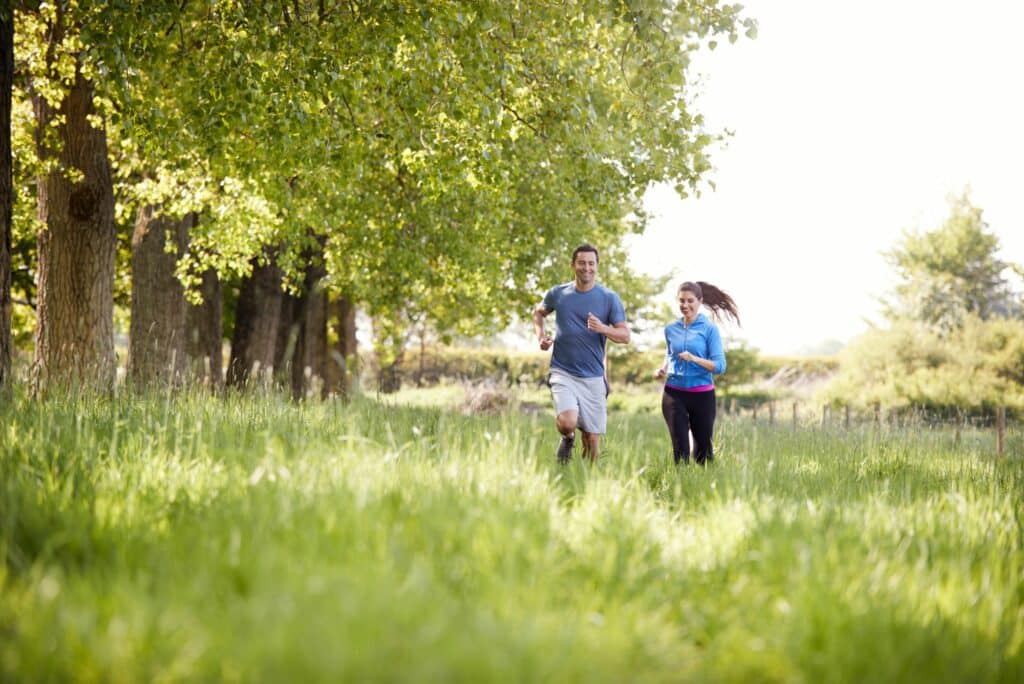


The pitter-patter of feet on the pavement, the rhythm of your breath, the wind in your hair, and the sun kissing your skin — the essence of running is a metaphorical reflection of life’s simple joys. But for many individuals who are new to the sport, there’s one nagging question that can stifle the initial excitement: Does it matter if I run slow?
For beginner runners, the concern over their pace is often the biggest obstacle to lacing up their running shoes. This inhibition can lead to self-doubt, which may ultimately deter them from the community and the benefits that running offers. This blog post focuses on why running speed should not dictate our choice to run and how to build confidence as a beginner in the running world.
If you’re lacing up your running shoes for the very first time or hitting the pavement after a long hiatus, slow or not, you’re already ahead of those who haven’t taken that first step. The most challenging part is often just the start, but finding the confidence to begin can propel you towards a regular running routine that’s based on personal progress, not performance.
Every runner, from the humble weekend jogger to the seasoned marathoner, had a ‘starting line.’ What’s beautiful about your slow start is that it’s an honest reflection of your current fitness level and stage in the running journey. It’s not a race or a competition with anyone else but yourself. Your first run signifies a decision to foreground your health and wellness, a step that’s invaluable regardless of pace.
Confidence stems from setting achievable goals. Your running goal could be as simple as running for 10 minutes without stopping, or it could be a long-term objective like completing your first 5k. Setting these smaller, measurable goals allows you not just to track your progress but to celebrate your victories, no matter how small they may seem to others.
Fitness can often be a major concern for those starting their running journey. The thought of not being able to keep up or running out of breath can be daunting. However, understanding your current fitness level and gradually improving is key to overcoming this fear.
Begin with a fitness assessment. Be aware of your body’s current capabilities and any potential health concerns. Prioritise safety and health over everything else. Remember, even the fittest athletes started from a place of relative inactivity or discomfort.
The slow progress of running is what makes it such a rewarding sport. Your capacity and stamina will grow, imperceptibly at first, but with meaningful consistency. Don’t push yourself too hard, too soon. The long-term goal is to enjoy running while staying injury-free.
Your mind is just as crucial as your body in the running game. If you believe you can, or you believe you can’t, you’re right. Shifting your thought patterns from self-doubt to positive anticipation can drastically change your experience with running.
Spend a few minutes each day visualising a successful run. See yourself finishing a run without stopping, feel the sense of achievement, and hear the encouraging words you would tell a friend. These mental images can reinforce your capabilities and steal the power from your doubts.
The way you describe your running experience can be a self-fulfilling prophecy. Instead of saying “I’m not good at running,” try reinforcing a positive image with “I’m learning to enjoy running more each time I go out.” The subtle change in phrasing can build a more constructive relationship with running.

It’s important to remember that running is an individual sport. Unlike team sports, your progression and experience aren’t reliant on anyone else’s capabilities. Whether you run a 6-minute mile or a 12-minute mile, your strength, rhythm, and unique relationship with the sport are what embody the essence of running.
Tune into the sensory experience of running. The way your body moves with each step, the environment around you, and the gradual shift in your physical strength and stamina are joys that belong to all runners, regardless of speed.
Celebrate your personal bests, not just the quick wins on the clock. It could be running a bit further than you did the week before or finding that an incline isn’t as intimidating as it used to be. Every step forward is a win.
In the vast running community, there will always be someone faster. Just as it’s important not to compare your speed to others, it’s equally important not to use your pace as a benchmark for value. Every runner brings something unique to the table, and your pace is only one aspect of the multifaceted benefits of running.
Use the faster runners as motivation for your own growth. There’s inspiration to be found in the dedication and precision of quicker runners. However, remember that they also started somewhere and didn’t get to their speed by sheer willpower alone.
Running is celebrated for its inclusivity. People of all abilities and backgrounds unite under a common love for running. This diversity is part of what makes it a beautiful sport. Value the contributions of every runner, regardless of pace.

In the everyday conversation around running, there’s often an unintentional bias towards pace. The term ‘slow’ can carry a stigma that simply isn’t fair. Running slowly is neither indicative of lesser effort nor lesser commitment. It’s merely a reflection of where you are in your running evolution. Try not to worry about what other runners might think of your pace. In reality, they’ll likely be happy to see another runner enjoying the sport, or they’ll be focused on their own run and pace, rather than paying attention to how fast you’re going.
Don’t allow pace to define you as a runner. Instead, consider what running means to you, independent of any speed or time frame. Running can be a space for meditation, growth, challenge, and simple enjoyment.
The health benefits of running are not exclusive to those who run faster. Whether you’re jogging lightly or sprinting, your cardiovascular health, stress relief, and mental clarity are all being served. Your decision to run, no matter the pace, is a significant investment in your well-being.
If you’ve lost confidence in your running, the return can be just as rewarding as your first attempt. Rebuilding a running habit after a break or a setback requires patience, self-compassion, and a willingness to rediscover your pace.
Recognise what led to the pause in your running routine and be gentle with yourself. Life’s demands and unexpected obstacles are standard reasons for break periods. Accept that the interruption is past and focus on your next step forward.
Restarting your practice might require going back to the basics. Begin with shorter intervals at a comfortable pace. Pay attention to your body, rediscover your form, and establish a rhythm. The muscle memory and cardiovascular stamina you built in your previous runs will return with time.
Consistency is vital, and staying motivated to run regularly can be a challenge. The initial excitement often wanes, or life’s commitments can take precedence. To maintain your running momentum, it’s essential to have a motivator that transcends the joy of a ‘runner’s high.’
Ask yourself why you started running in the first place. Was it for health reasons, relieving stress, or a personal challenge? Revisiting your initial motivation can reignite the passion that led you to the sport.
Engaging with a running community, whether in-person or online, can be an invaluable support system. Sharing your goals, frustrations, and triumphs with like-minded individuals can keep you inspired and connected to the running spirit. Try to find your local club with UK running club directory.

Running, at its core, is about personal growth and a resilient spirit. Whether you run like the wind or casually jog at your own pace, your commitment to the sport is commendable. The invisible benefits of running — the discipline, the resilience, the mental fortitude — are gifts that no stopwatch can measure.
If you’re a beginner or a returning runner seeking a structured approach, consider downloading our free Coach the Run – Couch to 5K training plan. Our programme aims to build your endurance and love for running at a manageable and considerate pace. It’s an ideal starting point for any novice or returning runner looking for guidance and community support.
Join our mailing list to stay up to date with the latest UK running events, training tips, and exclusive offers on running products. Rest assured, we value your privacy and would never dream of selling your address. Sign up now…
Share this article
During my last marathon, I threw up at 23 miles and could not finish at...
Pronation refers to the way your foot rolls inward when you walk or run. Understanding...
For 2026, the London Marathon has changed its Good For Age (GFA) qualifying times, and...
The benefits of running a marathon include improved physical health, better mental well-being, and personal...
Running is a great way to stay fit and healthy, but it can also be...
Running cadence is an essential aspect of running that can greatly impact your performance and...
We’re here to make sure you’re up-to-date with the latest running tips, events and product discounts – we’ve always got your back! Rest assured, we value your privacy and would never dream of selling your address.
BONUS: Sign up today and receive a FREE code for our Sub-4-Hour Marathon Plan
Your privacy settings
Manage Consent Preferences
Necessary
Analytics
Embedded Videos
Marketing
Facebook Advanced Matching
Facebook CAPI